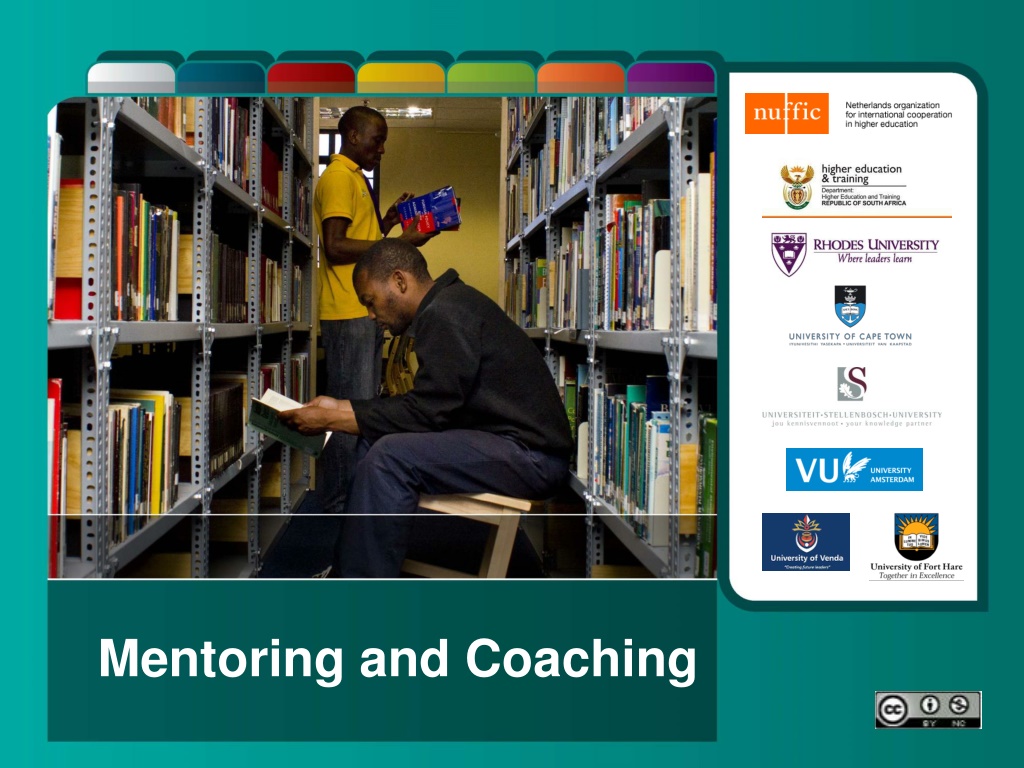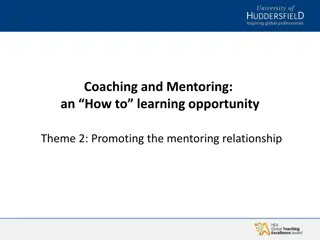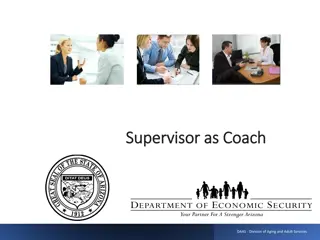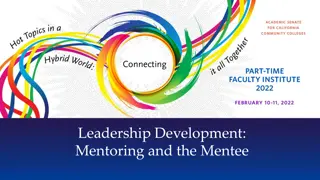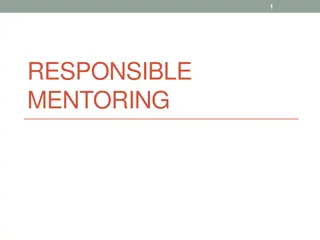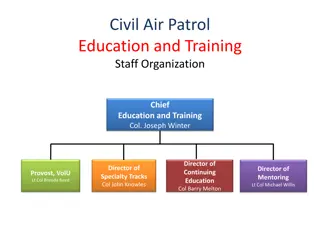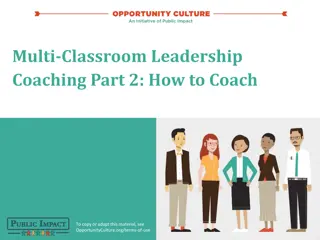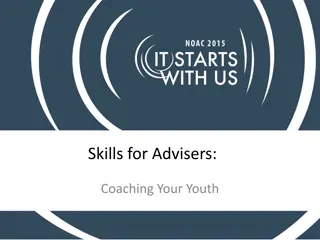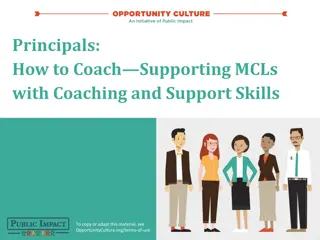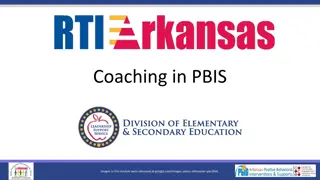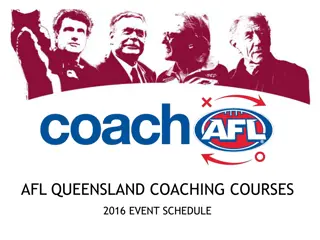Understanding Mentoring, Coaching, and Building Relationships in Education
Exploring the different perspectives, core functions, requirements, challenges, and distinctions of mentoring and coaching in academic settings. Delve into the importance of fostering relationships, providing support, and guiding student researchers towards their goals.
Download Presentation

Please find below an Image/Link to download the presentation.
The content on the website is provided AS IS for your information and personal use only. It may not be sold, licensed, or shared on other websites without obtaining consent from the author. Download presentation by click this link. If you encounter any issues during the download, it is possible that the publisher has removed the file from their server.
E N D
Presentation Transcript
Perspectives of mentoring Student perspective: a good mentor is a nurturing teacher and a knowledgeable friend (Bennett 2002) A mentor has multiple roles Requires setting of boundaries (Wilkes 2006) Optimises the helping nature of the interaction
Core functions of a mentor Develop a personal relationship with the student Provide professional, emotional, psychological and moral support Direct, assist and guide the student s career and professional development Role-modelling or showing the way Develop trust, confidence and mutual respect between the student and mentor Encourage reciprocity within the relationship in terms of derived benefits
Requirements for mentorship Be aware of all the academic requirements for the programme Ensure that the student is aware of requirements and of possibilities for funding etc. Provide personal one-on-one support to student Be aware of needs of student Have the capacity to refer the student, when needed, to appropriate personnel for specialised academic or psycho-social support
Challenges of mentoring Developing dependence (Wilkes 2006) Dysfunctional relationship (Wilkes 2006) Can you think of more challenges?
What is coaching? Helping student researchers to clarify their life purpose, values and goals, and helping them to attain these goals in a creative and conscious way. A coach asks: What is happening now? and What next? rather than Why?
How are coaching and mentoring different? Mentoring Coaching Focus Individual Performance Relationship Self selecting Pre-determined Source of influence Perceived value Position Personal returns Affirmation / learning Performance Bias Biased in your favour Impartial Adapted from Starcevich (no date)
Coaching, mentoring and supervising? How are they the same? How are they different?
